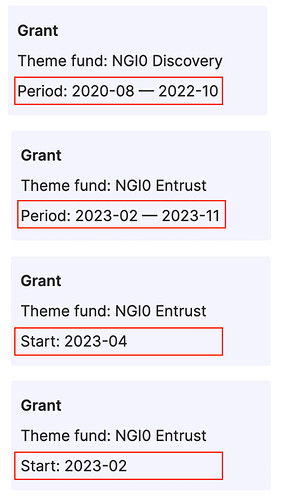Hi @thb
I do understand that facts and evidence put your tenure as a director and as a chairperson in a very bad light but by carrying on trying to mislead the community doesn’t improve your position at all.
Talking about gish gallop I’ll briefly comment your points without “random pastes and quotes” as you know where to find the supporting evidence for my statements:
-
Tell me more about “artificial scarcity” and a “source only” agreement on which you commented even before I joined the board. Things were done in ways that didn’t match our statutes, I raised the issue and then the whole board worked on it.
You were indeed interested in keeping the status quo as you were doing business with LibreOffice Online, eg:
Press Release: CIB and Crust Technology announce partnership - CIB Group
-
The outcomes for LibreOffice Online were either we kept it in an artificial limbo where TDF was hosting it and promoting it without actually making it “user-centered” as from our statutes or we ask to clarify the relationship between TDF and the project. In September 2020 the valuable member of the ecosystem decided to clarify the relationship.
3, The board learned that the funding to improve LibreOffice Online went on until 2022. Our inquiry led to changing the page of the funding, the 23/06/2025, to reflect the actual intentions that were masked as community project. So yes, you were clearly in CoI also on LibreOffice Online but you kept the real description of that funding secret while acting in CoI for years.
4, If you check your email archive you’ll find that I was working with the rest of the board to find a win-win balance between the commercial needs of the valuable members of the ecosystem and the need to fulfil our statutes by publishing LibreOffice in an “user-centered” manner.
In 2018, 2 years before joining the board, I was mislead to think, like others, that LibreOffice Online was a community project and that I should promote it also commercially to support the valuable members of the ecosystem. When I joined the board I then found what the real situation was, the board agreed that the issue should be solved and the valuable member of the ecosystem did it for us.
If I’m to be in CoI for my wrongly placed belief that LibreOffice Online was a community project in 2018, 2 years before joining the board, and to try to support the valuable members of the ecosystem then you confirm you acted in CoI for years while being a board member selling LibreOffice Online and then selling the forked version of LibreOffice Online.
- There were no bridges to repair. Michael decided to breach the agreement and forked LibreOffice Online, that’s it. Then as you were being funded to develop an improved version of LibreOffice Online you could have disclosed that as that could have changed the situation a lot in terms of keeping the repositories open and allowing interested developers to join into a project that would have finally be seen as a community project. You choose to remain silent leading to the killing of LibreOffice Online and then promoting and voting its final demise when you were the board chairman while in CoI.
Then I never had concerns about NGI Zero funding projects that then lead to commercial offerings, my concern has only been about asking and obtaining funding for improving LibreOffice Online to deliver P2P and E2EE features, never deliver these features to LibreOffice Online and then just create a commercial product out of the features that should have been in LibreOffice Online.
Now that we asked, the project has been rebranded to reflect what happened to the 2 year funding you received for LibreOffice Online but you should get it corrected as in August 2020 there was no allotropia nor ZetaOffice.
You want to carry on trying to mislead the community and make public more of your wrongdoings or you want to take a break, reflect on the things you did and apologise so that we can restart a productive and mutually beneficial relationship without making the same mistakes?
Then to avoid future discussions. I see that LibreOffice CRDT still points to libreoffice.org, does that mean that you would allow TDF to work on it an release if as a community project or you’ll complain that it’s your employer’s commercial product and we must leave it alone?
Ciao
Paolo


